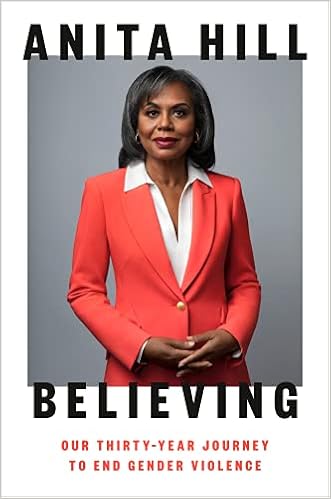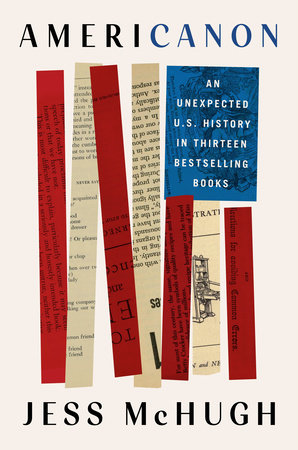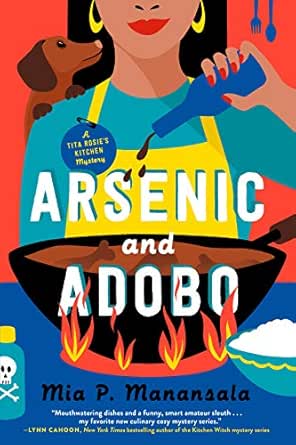
As the leaves are finally changing and the temperatures are finally resembling those of autumn, you might find yourself looking for a new book to read with your PSL or otherwise seasonally appropriate hot beverage. Well, look no further! Here’s a quick sampling of some recently added titles in our Overdrive and New & Noteworthy collections. Remember, we are always adding new titles to both of these collections, so be sure to frequently check back with each of them!
 The Wrong End of the Telescope by Rabih Alameddine. Alameddine’s sixth novel tells the story of Mina Simpson, a middle-aged Lebanese-American physician who volunteers to treat migrants on the Greek island of Lesbos in the midst of a refugee crisis. The experience is very emotionally taxing for Mina, in no small part because her patients and their lives remind her so much of her painful childhood growing up in Beirut, clashing with the conservative culture in which she was raised—along with her abusive parents—before eventually attending Harvard, becoming a doctor in Chicago, undergoing gender transitioning, and adopting her current name. While dealing with these connections, she serves as a vivid narrator of all the people she encounters, painting detailed portraits of her patients to an unnamed Lebanese writer, and wryly criticizing the Western journalists and others who have come to Lesbos to gawk at the crisis as it unfolds. Indeed, the novel offers a thorough examination of Western attitudes toward the Middle East and the refugee crisis in particular, as Mina and the writer contemplate how her stories might be received in the United States. You can read reviews here and here.
The Wrong End of the Telescope by Rabih Alameddine. Alameddine’s sixth novel tells the story of Mina Simpson, a middle-aged Lebanese-American physician who volunteers to treat migrants on the Greek island of Lesbos in the midst of a refugee crisis. The experience is very emotionally taxing for Mina, in no small part because her patients and their lives remind her so much of her painful childhood growing up in Beirut, clashing with the conservative culture in which she was raised—along with her abusive parents—before eventually attending Harvard, becoming a doctor in Chicago, undergoing gender transitioning, and adopting her current name. While dealing with these connections, she serves as a vivid narrator of all the people she encounters, painting detailed portraits of her patients to an unnamed Lebanese writer, and wryly criticizing the Western journalists and others who have come to Lesbos to gawk at the crisis as it unfolds. Indeed, the novel offers a thorough examination of Western attitudes toward the Middle East and the refugee crisis in particular, as Mina and the writer contemplate how her stories might be received in the United States. You can read reviews here and here.
 Believing: Our Thirty-Year Journey to End Gender Violence by Anita Hill. In this book, Brandeis law professor Anita Hill discusses the current state of gender-based violence in the contemporary United States, describing its general pervasiveness and inextricable connection to other forms of bigotry, including racism and transphobia. Reflecting on her own allegations of sexual harassment against Supreme Court Justice Clarence Thomas and her subsequent testimony against him during his confirmation hearings thirty years ago, Hill remarks upon how little the myriad difficulties facing people alleging gender-based violence against those in power have changed, comparing her experience with that of Christine Blasey Ford, who alleged sexual assault by, and testified against, Supreme Court nominee Brett Kavanaugh in 2018, as well as that of Tara Reade, who alleged that now-President Joe Biden sexually assaulted her in 1993. In describing all these events, as well as several others, Hill focuses primarily on the numerous barriers facing those who experience gender-based violence, as well as the way this violence affects everyone all of ages, races, and social classes. With its informative—though often difficult—details, Hill’s book is a compelling read. You can read reviews here and here.
Believing: Our Thirty-Year Journey to End Gender Violence by Anita Hill. In this book, Brandeis law professor Anita Hill discusses the current state of gender-based violence in the contemporary United States, describing its general pervasiveness and inextricable connection to other forms of bigotry, including racism and transphobia. Reflecting on her own allegations of sexual harassment against Supreme Court Justice Clarence Thomas and her subsequent testimony against him during his confirmation hearings thirty years ago, Hill remarks upon how little the myriad difficulties facing people alleging gender-based violence against those in power have changed, comparing her experience with that of Christine Blasey Ford, who alleged sexual assault by, and testified against, Supreme Court nominee Brett Kavanaugh in 2018, as well as that of Tara Reade, who alleged that now-President Joe Biden sexually assaulted her in 1993. In describing all these events, as well as several others, Hill focuses primarily on the numerous barriers facing those who experience gender-based violence, as well as the way this violence affects everyone all of ages, races, and social classes. With its informative—though often difficult—details, Hill’s book is a compelling read. You can read reviews here and here.
 My Monticello by Jocelyn Nicole Johnson. In this debut collection, Johnson tells numerous stories, most of which feature Black characters in contemporary Virginia (Johnson’s home state) reckoning with experiences of racism and their own racial identities, with the heavy history and culture of the state serving as a kind of omnipresent backdrop. The titular novella of the collection, which takes up the most space in the book and also arrives at the very end of the collection, sets itself in a near-future Charlottesville undergoing organized racial violence perpetrated by white supremacist militias (with Johnson’s imagery heavily alluding to the events of the 2017 Unite the Right rally that took place in the city). In this story, UVA student Da’Naisha leads a group of fleeing Black and brown Charlottesville residents (including her own grandmother) to Monticello, Thomas Jefferson’s plantation located just outside the city; having previously interned there, Da’Naisha knows it to be a potentially effective hideout. As the characters hide there, they are continuously confronted with the links between the plantation’s history and their current circumstances as refugees from racial violence. For Da’Naisha, this link is particularly acute, as she reveals to her grandmother that they are both descendants of Thomas Jefferson and Sally Hemings. You can read reviews here and here.
My Monticello by Jocelyn Nicole Johnson. In this debut collection, Johnson tells numerous stories, most of which feature Black characters in contemporary Virginia (Johnson’s home state) reckoning with experiences of racism and their own racial identities, with the heavy history and culture of the state serving as a kind of omnipresent backdrop. The titular novella of the collection, which takes up the most space in the book and also arrives at the very end of the collection, sets itself in a near-future Charlottesville undergoing organized racial violence perpetrated by white supremacist militias (with Johnson’s imagery heavily alluding to the events of the 2017 Unite the Right rally that took place in the city). In this story, UVA student Da’Naisha leads a group of fleeing Black and brown Charlottesville residents (including her own grandmother) to Monticello, Thomas Jefferson’s plantation located just outside the city; having previously interned there, Da’Naisha knows it to be a potentially effective hideout. As the characters hide there, they are continuously confronted with the links between the plantation’s history and their current circumstances as refugees from racial violence. For Da’Naisha, this link is particularly acute, as she reveals to her grandmother that they are both descendants of Thomas Jefferson and Sally Hemings. You can read reviews here and here.

 Arsenic and Adobo by Mia P. Manansala. Manansala’s debut, the first entry in a new mystery series, tells the story of Lila Macapagal, a young woman who has moved back to her Illinois hometown following the emotionally-wrought breakup of her engagement. While she intends simply to assist her aunt in the running of her Filipino restaurant, Tita Rosie’s Kitchen, things quickly take a turn when her embittered ex-boyfriend from high school, restaurant reviewer Derek Winter, abruptly dies in the middle of a meal there. While these circumstances are enough to cast suspicion on Lila, making matters worse is the fact that Derek was dining with his stepfather, the restaurant’s landlord with whom Lila’s aunt had been having financial difficulties. Lila is quickly pinned as the primary suspect in Derek’s apparent murder, leaving her no recourse but to try to clear her name, which she does with the assistance of her friend Adeena and Adeena’s brother Amir, an attorney who also serves as Lila’s love interest. Though this mystery deals with a number of dark elements, the tone remains generally light throughout, and the events of the novel are brightened by Manansala’s detailed descriptions of food and the many ways it figures into the lives of the book’s characters. You can read reviews here and here.
Arsenic and Adobo by Mia P. Manansala. Manansala’s debut, the first entry in a new mystery series, tells the story of Lila Macapagal, a young woman who has moved back to her Illinois hometown following the emotionally-wrought breakup of her engagement. While she intends simply to assist her aunt in the running of her Filipino restaurant, Tita Rosie’s Kitchen, things quickly take a turn when her embittered ex-boyfriend from high school, restaurant reviewer Derek Winter, abruptly dies in the middle of a meal there. While these circumstances are enough to cast suspicion on Lila, making matters worse is the fact that Derek was dining with his stepfather, the restaurant’s landlord with whom Lila’s aunt had been having financial difficulties. Lila is quickly pinned as the primary suspect in Derek’s apparent murder, leaving her no recourse but to try to clear her name, which she does with the assistance of her friend Adeena and Adeena’s brother Amir, an attorney who also serves as Lila’s love interest. Though this mystery deals with a number of dark elements, the tone remains generally light throughout, and the events of the novel are brightened by Manansala’s detailed descriptions of food and the many ways it figures into the lives of the book’s characters. You can read reviews here and here.

